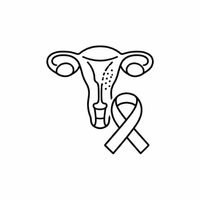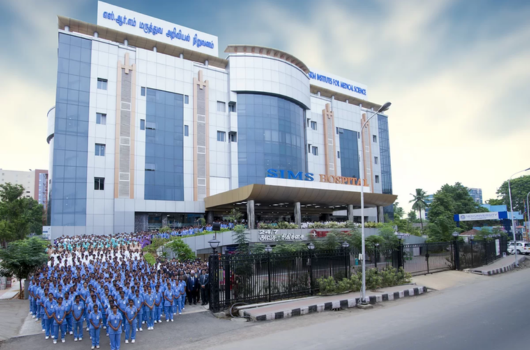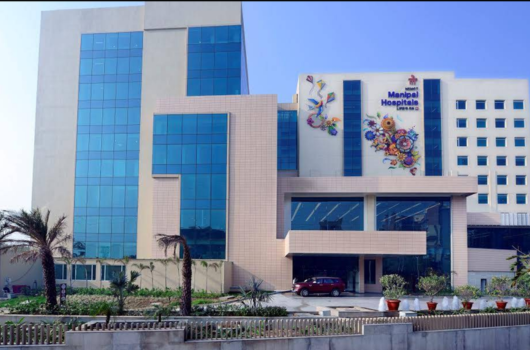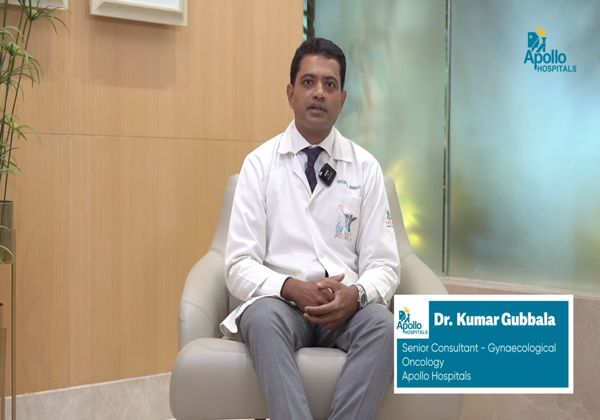
Cervical cancer happens when cells in the cervix grow abnormally and form a tumour. The cervix is the lower part of the uterus that connects to the vagina.
This cancer usually develops slowly. It often starts with pre-cancerous changes that can be detected early through regular screening.
The most common cause is HPV (human papillomavirus), a virus passed through sexual contact. In most cases, the body clears HPV naturally. But if the virus stays, it may cause changes in the cervix that develop into cancer over time.
A common myth is that cervical cancer only affects older women, but it can develop at any age, especially without regular screening.
Routine Pap smears and HPV tests help detect changes before cancer develops. Knowing what is cervical cancer highlights the importance of early screening and treatment.
Doctors determine the best treatment plan based on:
Getting the right treatment at the right time can make a big difference in the patient’s recovery and comfort.

Cervical cancer treatment is needed when abnormal or cancerous cells are found in the cervix. The goal is to remove these cells, stop the cancer from spreading, and protect quality of life.
Understanding why cervical cancer occurs helps with prevention and early care.
Doctors recommend starting cervical cancer treatment when:
Doctors choose cervical cancer treatment methods based on the stage of the disease, the tumour size, and the patient’s overall health. The aim is to remove cancer cells, stop their spread, and improve quality of life.
Main treatment options:
Treatment for cervical cancer varies for each patient based on individual health conditions. Always consult a qualified oncologist for an accurate diagnosis and personalised treatment plan.
Early treatment gives the best chance of controlling the disease and improving survival. Myheco connects you with leading hospitals worldwide that offer all major cervical cancer treatment methods under one roof, supported by specialised oncology teams.
Many leading hospitals around the world offer advanced care for cervical cancer patients. These centres are equipped with modern technology, multidisciplinary oncology teams, and dedicated support services for international patients.


.png)








.png)

These hospitals follow international guidelines for cancer care and are equipped to support patients from different countries, covering everything from diagnosis and treatment to follow-up care after returning home.
The average cost for cervical cancer treatment ranges from $1,300 to $3,000 in India, and from $2,400 to $5,700 in Thailand. The final expense depends on the stage of cancer, treatment method, hospital, and length of stay. Before going through the detailed table of treatment costs, it helps to know the main factors that influence these expenses.
Additional services such as scans, follow-ups, and interpreter support
Note: India has become a preferred destination for advanced cancer treatment, offering world-class care at a fraction of the international cost. Patients benefit from expert oncologists, modern medical technology, and affordable access to high-quality generic medicines, making treatment both effective and economical.
Note: Thailand has established itself as a premium destination for cancer treatment, offering world-class hospitals, advanced technology, and internationally trained oncologists. Patients choose Thailand not only for its high-quality medical care but also for its holistic approach, combining clinical excellence with exceptional comfort and service standards.
Note: The above figures are approximate and can vary based on the hospital, location, and individual patient requirements. Always consult the healthcare provider for the most accurate and up-to-date pricing.
The currency conversion rates in the table above are based on data from February 2026.
For a detailed cost estimate and guidance on treatment options, patients can reach out to myheco to connect with leading hospitals specialising in cancer care.
The outcome of cervical cancer treatment depends greatly on how early the disease is diagnosed. According to the National Cancer Institute:
These figures show why early detection and timely treatment are critical for better outcomes.
Success in cervical cancer treatment may include:
Leading Hospitals focus on early detection, advanced surgical methods, and multidisciplinary care. Their approach often includes:

Dr. Kumar Gubbala, Senior Consultant Gynaecological Oncologist at Apollo Proton Cancer Centre, Chennai, explains that cervical cancer is the second most common cancer in women after breast cancer, with about 125,000 new cases reported annually in India. He notes that typical symptoms include bleeding after intercourse, bleeding between periods, or unusual discharge. According to him, diagnosis is confirmed through three main steps: clinical examination, biopsy, and imaging to assess the extent of spread.
Leading hospitals use advanced surgical tools, modern radiation techniques, and a team-based approach to improve patient outcomes.
Myheco provides end-to-end assistance for patients seeking cervical cancer treatment worldwide. From connecting you with trusted specialists to managing travel and treatment logistics, Myheco ensures a smooth and transparent care experience.
Choosing myheco means expert care, faster access, and comprehensive support throughout your treatment journey.
Note: Myheco does not provide medical advice.

Mrs. Merewalesi, an international patient from Fiji, travelled to Apollo Hospitals Hyderabad after being diagnosed with stage II cervical cancer. Her treatment, led by Dr. Satyesh Nadella and his team, included urgent procedures, chemotherapy, and radiation therapy. She and her family expressed deep gratitude for the excellent medical care and compassionate support they received.
✅ Share your medical reports
✅ Receive personalised treatment plans from leading hospitals
✅ Choose the option that suits you best
✅ Let us handle the arrangements


Yes. Most countries require a medical visa for cancer treatment. Myheco helps patients with invitation letters and guides them through the visa application process.
Yes. Most hospitals allow one or two family members. They can apply for a medical attendant visa.
The duration depends on your treatment plan. On average, patients stay 3 to 6 weeks for surgery, therapy, and follow-up care. The duration mentioned is an estimate and can vary based on the patient’s condition, treatment type, and recovery progress. Always consult your treating doctor or hospital for a personalised treatment timeline.
Success depends on the stage of cancer. Early detection offers over 90% survival rates, while advanced cases need longer treatment but still have effective options. Factors such as cancer stage, overall health, and response to treatment can influence outcomes. Always discuss your specific case with a qualified oncologist.
Yes, myheco provides follow-up care services, including report reviews and continued support.
Doctors use anaesthesia during surgery. Any pain or side effects after treatment are managed with medication. Always consult your doctor to understand what to expect and how pain will be managed in your specific case.
India has several leading hospitals that specialise in cervical cancer treatment. In Chennai, top centres include SIMS Hospital, MGM Healthcare, Apollo Cancer Institute, and the Apollo Proton Cancer Centre. Bangalore’s Manipal Hospital Main Hospital Oncology is renowned for gynaecologic oncology. In Delhi, Manipal Hospital Dwarka, Max Hospital Saket, and BLK-Max Hospital are key providers. Mumbai’s Nanavati Max Hospital and Kolkata’s Manipal Hospitals EM Bypass (Medica Synergie Cancer Hospital) also offer advanced cervical cancer care.
Samitivej Sukhumvit Hospital and Samitivej Srinakarin Hospital are leading choices for cervical cancer care in Thailand. It provides advanced diagnostic services, minimally invasive surgery, precision radiation therapy, and comprehensive oncology support for international patients.

